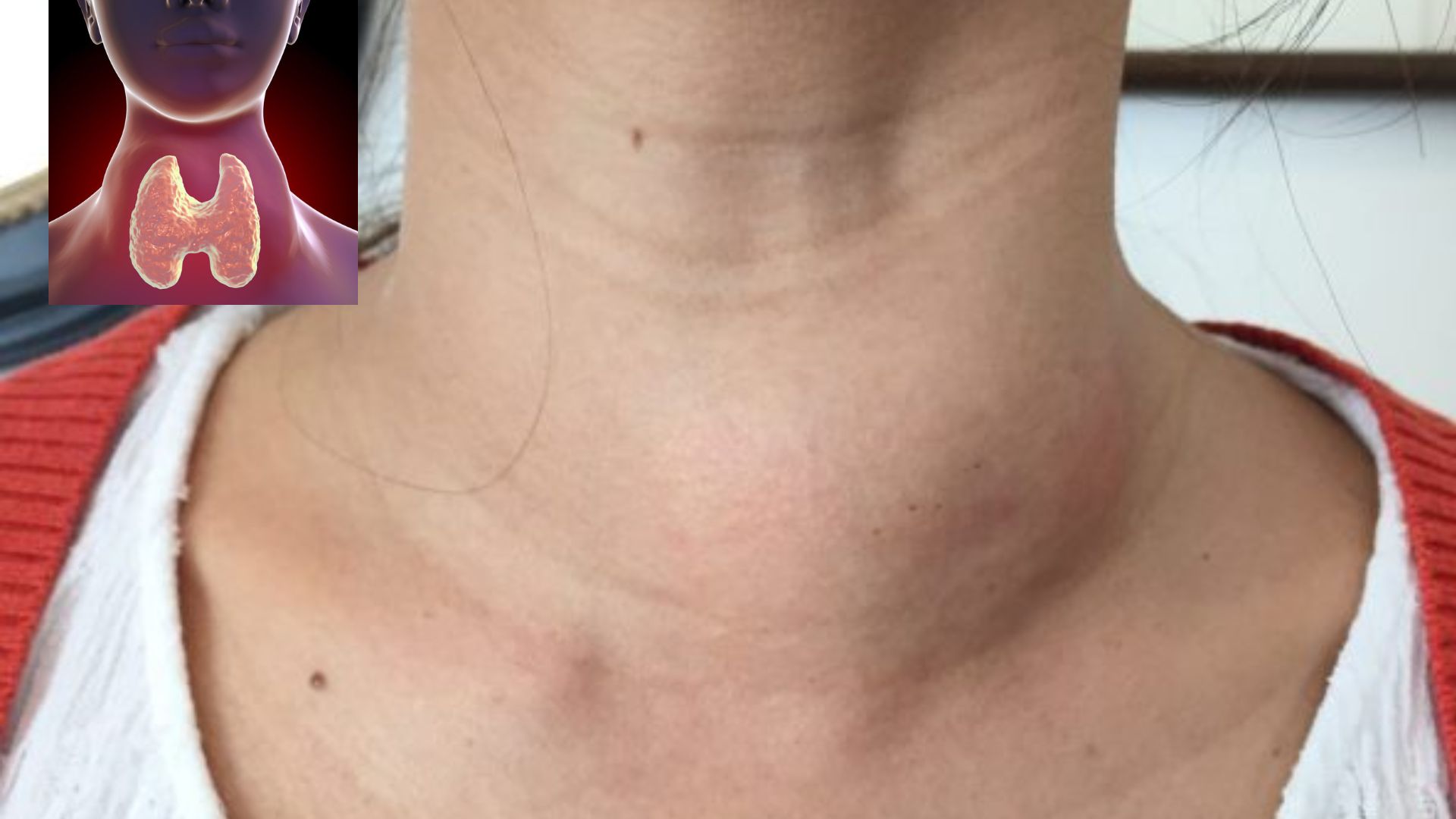
Goiter: Causes, Prevention, Treatments, and Natural Remedies
Table of Contents
Goiter is the abnormal enlargement of the thyroid gland, which is located at the base of the neck. The thyroid gland produces hormones that regulate various bodily functions, including metabolism, heart rate, and body temperature.
While goiters are usually painless, they can cause a noticeable swelling in the neck and potentially lead to complications if not treated. Understanding the causes, prevention strategies, treatments, and natural remedies for goiter is essential for managing this condition effectively.
Causes of Goiter
1. Iodine Deficiency: The most common cause of goiter worldwide is iodine deficiency. Iodine is crucial for the production of thyroid hormones. Inadequate iodine intake can lead to thyroid gland enlargement as it tries to capture more iodine from the bloodstream.
2. Graves’ Disease: An autoimmune disorder where the immune system mistakenly attacks the thyroid gland, causing it to produce excess hormones (hyperthyroidism), leading to goiter.
3. Hashimoto’s Thyroiditis: Another autoimmune disorder where the immune system attacks the thyroid gland, resulting in inflammation and underproduction of thyroid hormones (hypothyroidism), which can cause goiter.
4. Thyroid Nodules: Growths or lumps in the thyroid gland can cause it to enlarge. These nodules can be benign or malignant.
5. Thyroid Cancer: Although rare, cancerous tumors in the thyroid can cause gland enlargement.
6. Pregnancy: Pregnancy can sometimes cause goiter due to changes in hormone levels and increased demand for thyroid hormones.
7. Inflammation: Thyroiditis, or inflammation of the thyroid gland, can lead to swelling and goiter.
Prevention of Goiter
1. Adequate Iodine Intake: Ensure sufficient iodine intake through diet. Foods rich in iodine include iodized salt, seafood, dairy products, and certain vegetables like seaweed.
2. Monitor Medications: Certain medications can interfere with thyroid function. Regular monitoring and consultation with a healthcare provider can help manage this risk.
3. Regular Thyroid Check-ups: Regular medical check-ups can help detect thyroid issues early, allowing for timely intervention.
4. Avoid Goitrogens: Some foods contain substances known as goitrogens, which can interfere with thyroid function. These include soy products, cruciferous vegetables (like cabbage, broccoli, and cauliflower), and certain nuts and seeds. Cooking these foods can reduce their goitrogenic effect.
Treatments for Goiter
1. Medications: Depending on the cause, medications can be used to normalize thyroid hormone levels:
- Levothyroxine: For hypothyroidism.
- Antithyroid Medications: For hyperthyroidism.
- Iodine Supplements: For iodine deficiency.
2. Radioactive Iodine Therapy: Used to shrink the thyroid gland in cases of hyperthyroidism or certain types of thyroid cancer.
3. Surgery: Thyroidectomy, or removal of part or all of the thyroid gland, may be necessary in cases of large goiters, cancer, or obstructive symptoms.
4. Observation: Small, asymptomatic goiters may simply be monitored regularly without immediate intervention.
Natural Remedies and Lifestyle Changes
1. Balanced Diet: A diet rich in essential nutrients, including iodine, selenium, and zinc, supports thyroid health. Foods such as fish, eggs, nuts, and whole grains are beneficial.
2. Hydration: Adequate water intake helps in maintaining overall health, including thyroid function.
3. Stress Management: Chronic stress can affect thyroid function. Practices like yoga, meditation, and regular exercise can help manage stress.
4. Avoid Smoking: Smoking can interfere with thyroid function and increase the risk of goiter.
5. Regular Exercise: Physical activity supports overall health and can help maintain a healthy thyroid.
Symptoms Related to Thyroid Dysfunction
In addition to the physical symptoms of goiter, individuals may also experience symptoms related to either hypothyroidism or hyperthyroidism, depending on the underlying thyroid condition.
- Hypothyroidism Symptoms: As listed above, including fatigue, weight gain, cold intolerance, dry skin, and constipation.
- Hyperthyroidism Symptoms: These may include weight loss, heat intolerance, nervousness, tremors, rapid heartbeat, and increased appetite.
What is Hypothyroidism?
Hypothyroidism is a condition where the thyroid gland, located at the base of the neck, does not produce enough thyroid hormones. These hormones are crucial for regulating metabolism, energy production, and various other bodily functions. When the thyroid is underactive, the body’s metabolism slows down, leading to a range of symptoms and potential health issues.
Causes of Hypothyroidism
1. Autoimmune Disease: The most common cause is Hashimoto’s thyroiditis, an autoimmune disorder where the immune system attacks the thyroid gland.
2. Iodine Deficiency: Iodine is essential for thyroid hormone production. Inadequate intake can lead to hypothyroidism.
3. Thyroid Surgery: Removal of all or part of the thyroid gland can result in decreased hormone production.
4. Radiation Therapy: Radiation treatment for cancers of the head and neck can affect thyroid function.
5. Medications: Certain drugs, such as lithium, can interfere with thyroid hormone production.
6. Congenital Hypothyroidism: Some babies are born with a defective thyroid gland or no thyroid gland at all.
7. Pituitary Disorders: The pituitary gland controls the thyroid gland through thyroid-stimulating hormone (TSH). Pituitary dysfunction can lead to hypothyroidism.
8. Pregnancy: Some women develop hypothyroidism during or after pregnancy, known as postpartum thyroiditis.
Symptoms of Hypothyroidism
The symptoms of hypothyroidism can vary widely and often develop slowly, making them easy to overlook or attribute to other causes. Common symptoms include:
- Fatigue and sluggishness
- Weight gain
- Cold intolerance
- Dry skin and hair
- Constipation
- Muscle weakness and joint pain
- Depression
- Memory problems
- Heavy or irregular menstrual periods
- Elevated blood cholesterol levels
- Puffy face
- Hoarseness
- Goiter (enlarged thyroid gland)
Symptoms of Goiter
Goiter is an enlargement of the thyroid gland, which can be associated with both hypothyroidism and hyperthyroidism (overactive thyroid), as well as other thyroid conditions. The symptoms of goiter can vary depending on its size, underlying cause, and the presence of thyroid dysfunction.
Common Symptoms of Goiter
1. Visible Swelling: The most noticeable symptom is a visible swelling at the base of the neck, which may be symmetric or asymmetric.
2. Tight Feeling in the Throat: An enlarged thyroid can cause a sensation of tightness or fullness in the neck.
3. Difficulty Swallowing: A large goiter can press against the esophagus, making it hard to swallow.
4. Difficulty Breathing: If the goiter compresses the windpipe (trachea), it can lead to breathing difficulties, particularly when lying down.
5. Coughing or Hoarseness: Compression of the nearby structures can cause persistent coughing or changes in voice, such as hoarseness.
6. Neck Vein Distention: Large goiters can compress blood vessels, leading to visible distention of neck veins.
Additional Important Details
2. Complications: Large untreated goiters can lead to complications such as difficulty breathing and swallowing, and in severe cases, can cause damage to the blood vessels and nerves in the neck.
3. Diagnosis: Diagnosis typically involves a physical examination, thyroid function tests, ultrasound, and sometimes biopsy if nodules are present.
Conclusion
Goiter is a condition that can arise from various causes, primarily related to thyroid function and iodine intake. Prevention through adequate nutrition and lifestyle choices, along with regular medical check-ups, can significantly reduce the risk of developing goiter.
For those who develop goiter, a combination of medical treatments and natural remedies can effectively manage and treat the condition. Awareness and proactive management are key to maintaining thyroid health and preventing complications associated with goiter.
Continue reading: Vitamin D Deficiency: Signs, Symptoms, and Solutions
